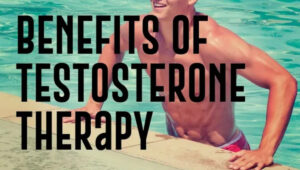Introduction
Do you feel sleepy, moody, or have a decreased libido? You could be one of the many people impacted by low testosterone levels. Fortunately, Miami offers a variety of therapy choices to help you restore your vigour and well-being.
Understanding Low Testosterone.
Before getting into therapy, it’s important to understand what low testosterone Treatment in Miami, or hypogonadism, is. Testosterone is a hormone found mostly in men’s testicles and in smaller amounts in women’s ovaries. It is essential for a variety of body activities, including muscle mass maintenance, bone density, fat distribution, and sexual drive. When testosterone levels fall below normal, it can cause a variety of symptoms including fatigue, depression, decreased muscular mass, and erectile dysfunction.
Symptoms of low testosterone:
Identifying the signs of low testosterone is the first step towards getting treatment. These symptoms manifest differently in men and women:
Symptoms in Men:
- Fatigue and decreased energy levels
- Reduced muscle mass and strength
- Erectile dysfunction or decreased libido
- Mood swings and irritability
- Loss of body hair
- Higher body fat, especially around the abdomen.
Symptoms in Women:
- Irregular or absent menstrual periods
- Decreased libido
- Fatigue and decreased energy levels
- Loss of muscle mass
- Mood changes, including depression and irritability
Diagnosis
Diagnosing low testosterone involves a thorough evaluation by a healthcare professional. This typically includes a physical exam, blood tests to measure testosterone levels, and possibly additional tests to rule out other underlying conditions.
Treatment Options
1. Testosterone replacement therapy (TRT)
Testosterone replacement therapy is the most common treatment for low testosterone. To restore testosterone levels to normal, the body is supplemented with it. TRT can be delivered in a variety of ways, including:
Injections: Administered every 2-4 weeks by a healthcare provider.
Topical gels or patches: Applied daily to the skin, allowing for consistent absorption of testosterone.
Implants: Small pellets inserted under the skin, releasing testosterone over several months.
- Lifestyle Changes
In addition to medical interventions, certain lifestyle changes can also help manage low testosterone levels. These include:
Regular exercise: Engaging in both cardiovascular and strength training exercises can help boost testosterone levels.
Healthy diet: Consuming a balanced diet rich in protein, healthy fats, and essential nutrients is important for overall hormonal health.
Adequate sleep: Getting enough sleep is crucial for hormone regulation and overall well-being.
Stress management: Practicing stress-reducing techniques such as meditation or yoga can help balance hormone levels.
- Medications
In some cases, medications other than testosterone may be prescribed to address specific symptoms of low testosterone. These may include medications for erectile dysfunction, depression, or other related conditions.
Choosing the Right Treatment in Miami
When seeking low testosterone treatment in Miami, it’s essential to choose a reputable healthcare provider with experience in hormone therapy. Look for clinics or practices that specialize in men’s health or hormone replacement therapy.
Additionally, consider the following factors when selecting a provider:
Credentials:
Ensure the healthcare provider is licensed and board-certified in their field.
Patient reviews:
Read reviews from previous patients to gauge the quality of care and satisfaction with the treatment.
Customized treatment plans:
Look for providers who offer personalized treatment plans tailored to your specific needs and goals.
Follow-up care:
A comprehensive treatment approach should include regular monitoring of hormone levels and adjustments to the treatment plan as needed.
Benefits of Testosterone Treatment:

Boosting Energy and Vitality
One of the most notable benefits of testosterone treatment is the increase in energy and vitality. Many men report feeling more energetic and motivated after starting TRT. This surge in energy can lead to improved productivity, better performance in physical activities, and an overall sense of well-being.
Improves Libido and Sexual Function
Low testosterone levels have a substantial impact on desire and sexual performance. However, testosterone treatment can help rekindle the passion in the bedroom. TRT has been found in studies to improve sexual desire, erectile function, and overall pleasure in men with low testosterone.
Building lean muscle mass.
Testosterone is essential for muscle development and maintenance. Muscle growth and maintenance become more difficult when testosterone levels fall. However, TRT can assist in increasing muscle mass and strength, making it simpler to meet fitness objectives and live an active lifestyle.
Improving Bone Density
Another advantage of testosterone therapy is its beneficial effect on bone density. low testosterone Treatment in Miami, levels are linked to lower bone density, which increases the risk of osteoporosis and fractures.TRT can help improve bone health and reduce the risk of fractures by restoring testosterone levels.
Boosting Mood and Cognitive Function
Testosterone doesn’t just affect physical health; it also significantly impacts mood and cognitive function. Low testosterone levels have been linked to irritability, depression, and cognitive decline. However, TRT can help improve mood, cognitive function, and overall mental well-being.
Managing Fatigue and Sleep Issues
Fatigue and sleep disturbances are common symptoms of low testosterone. Many men with low testosterone report feeling tired, even after a full night’s sleep. Testosterone treatment can help alleviate fatigue and improve sleep quality, leading to a more restful and rejuvenating sleep experience.
Finally,
low testosterone Treatment in Miami, levels can have a substantial influence on quality of life, but with the appropriate treatment, people in Miami can reclaim their vitality and well-being. There are numerous alternatives for treating this common illness, ranging from testosterone replacement therapy to lifestyle adjustments. Individuals can regain control of their hormonal health and vitality by knowing the signs, seeking proper diagnosis, and selecting a respected healthcare professional.





